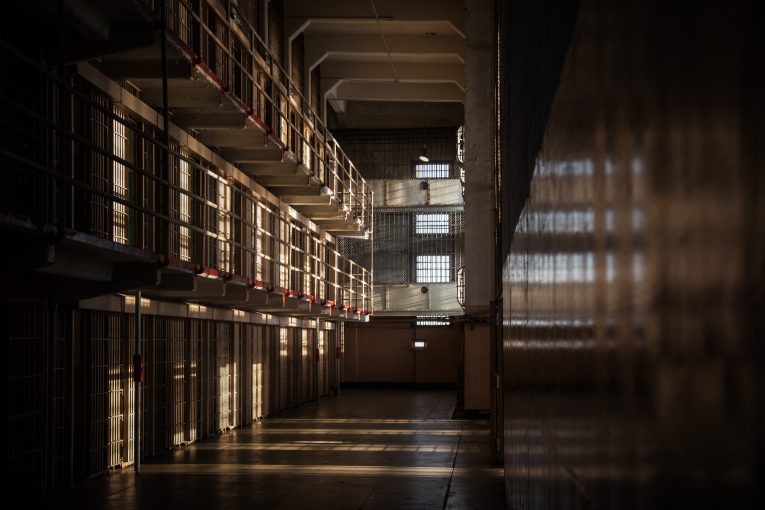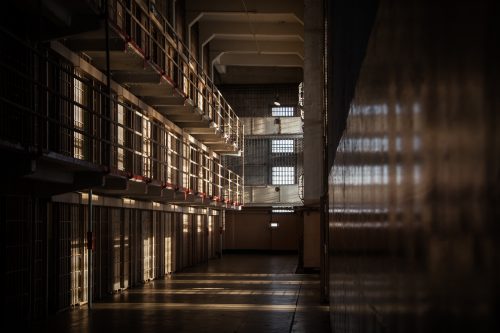

By Jessi Dannenberg and Melinda Kukaj
SAN FRANCISCO, CA – Progressive Prosecutors are being targeted by conservatives after the Progressive Prosecution movement has gained traction in its effort to challenge incumbent chief prosecutors across the U.S., in attempts to address the country’s high incarceration rate and systemic racial injustices within the criminal legal system, according to a recent panel here on Democracy Under Attack Webinar.
Monique Worrell, a former prosecutor in Florida, and elected State Attorney in the Ninth Judicial Circuit of Florida, shared her experience of being elected in 2020 with overwhelming support from voters who embraced her reform platform. She noted the need to reimagine the justice system, acknowledging the historical injustices ingrained within it and the disproportionate impact on minority communities.
“I was elected in 2020 by 67 percent of the vote, meaning 397,000 people cast their votes for me based on my reform platform. I ran on a platform of re-imagining the justice system, recognizing the disproportionate minority contact, recognizing the historical injustices that are built into the criminal legal system, recognizing that the United States incarcerates more people than anywhere in the world,” Worrell stated.
Despite their mandates from voters, some progressive prosecutors, as discussed by Worrell, have faced challenges, with even minor infractions leading to their removal from office and the movement continues to navigate obstacles but remains steadfast in its commitment to transforming the criminal justice system and advancing principles of fairness, equity, and accountability.
Angela Davis, a distinguished Professor of Law, American University Washington School of Law, noted the challenges faced by progressive prosecutors who ran on platforms of reforming the criminal justice system.
She said some of these elected officials encountered legal pushback from legislatures, with laws aimed at limiting their power and discretion or even facilitating their removal from office if their agendas didn’t align with legislative preferences.
“I want to talk about, and just to be clear, these legislatures have been passing laws to try to limit the discretion and power specifically of progressive prosecutors. The legislation is aimed at specific people to either limit their power and discretion or to have the power to remove them if in fact the legislature doesn’t like it,” Davis elaborated.
Davis said the Progressive Prosecution movement’s efforts represent a significant shift in addressing systemic issues within the criminal legal system, highlighting the importance of prosecutorial discretion and accountability in promoting justice and equity for all individuals impacted by the system’s decisions.
Michael Satin, Member, Mill & Chevalier Chartered, further elaborated on the challenges faced by progressive prosecutors in the legal arena, shedding light on the complex nature of their battles in courtrooms.
“That’s a bedrock principle in our legal system. Now, much of that law comes from long ago when it was criminal defendants, often poor and people of color, were challenging the old school law and order prosecutors for being too draconian.”
“And the courts were happy to say, no, no, no, they can do that because they have discretion. But that law that’s still on the books is very helpful to us because what sauce for the goose is sauce for the gander,” added Satin.
The second argument presented by Satin focused on the factual evidence supporting progressive prosecution policies.
“The whole theory that this under prosecution of crime, that not prosecuting every single drug case or theft case leads to higher crime is just false. The evidence shows overwhelmingly that these progressive policies do not cause an increase in crime. In fact, quite the opposite. They lead to a reduction in crime,” said Satin.
Satin also highlighted the procedural hurdles and requirements that often lead to the dismissal of cases brought against progressive prosecutors.
“We’re often able to win these cases, not even by litigating the merits, but by getting the cases dismissed early on because of the procedural defects and the people who bring them. Frankly, they don’t care about following the law, and they’re not taking enough time to do it the right way,” Satin explained.
The panelists agreed the challenges faced by progressive prosecutors extend beyond the legal realm and into the political arena.
Jessica Brand, Founder, Wren Collective, emphasized the political motivations behind the attacks on progressive prosecutors, arguing, “What is it? It’s about politics. It’s about power, it’s about race, it’s about class. Now, it’s about pregnant people and trans people and vulnerable communities.”
Worrell echoed this sentiment, pointing out that attacks on progressive prosecutors often extend to other areas of public service.
“For a while, they were really focused on Black women prosecutors. And that has not abated. What happened to Kim Gardner in Missouri was unconscionable,” said Worrell, who was suspended as prosecutor by Florida Gov. Ron DeSantis because of her beliefs.
Davis noted the significant role prosecutors play in contributing to the nation’s alarming incarceration rate and perpetuating racial disparities in the Democracy Under Attack Webinar.
She emphasized prosecutors hold immense power within the criminal justice system and often serve unopposed for extended periods.
Davis outlined the objectives of the Progressive Prosecution movement, which emerged around 2015, aiming to utilize prosecutors’ discretion to reduce prison and jail populations, eliminate racial disparities, rectify wrongful convictions, and divert unnecessary cases from the system, all while maintaining public safety.
“Relatively recently, I’d say around 2015, these incumbent chief prosecutors, people began to challenge them. Progressives began to challenge them. That is people who wanted to use their power and discretion as chief prosecutors to reduce the prison and jail population, to hopefully eliminate the racial disparities, to make the system fairer, to correct wrongful convictions, to divert cases out of this unnecessary cases out of the system to do all these things consistent with public safety,” Davis explained.
Despite the obstacles and attacks faced by progressive prosecutors, the panelists remained optimistic about the movement’s future, emphasizing the importance of continued support from allies and the need to push back against false narratives and misinformation.
Panelists noted the Progressive Prosecution movement is gaining momentum in its efforts to challenge incumbent chief prosecutors and reform the criminal legal system, advancing principles of fairness, equity, and accountability in the pursuit of justice for all individuals impacted by the system.